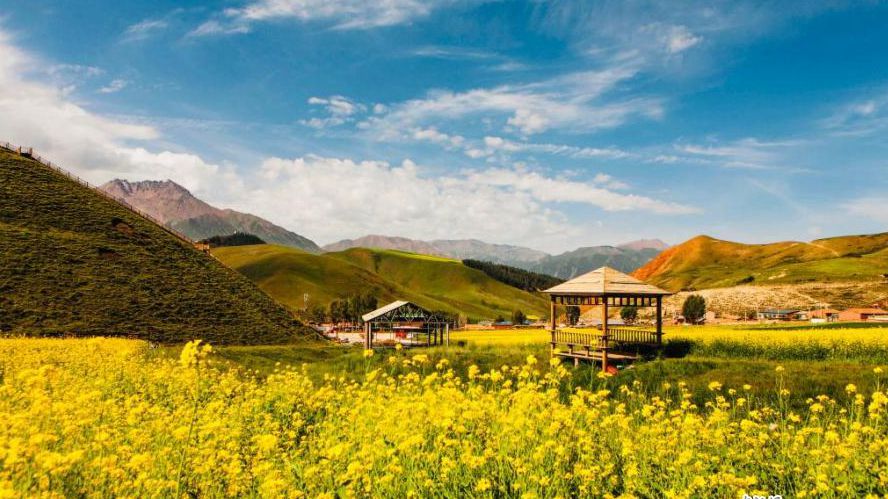Changsha in C China's Hunan Province protects forests, boosts under-forest economy
Changsha, capital of central China's Hunan Province, has protected its forests by applying different approaches and has developed an under-forest economy to boost its rural economy over the past few years.

Aerial photo shows a forest in Liuyang city, Changsha, capital of central China’s Hunan Province. (Photo courtesy of forestry bureau of Changsha)
Since 2021, the city has designated 3,552 forest chiefs at various levels, ranging from municipal level to village level, who are responsible for looking after a total of over 600,000 hectares of forests. Besides, there are over 1,160 full-time forest rangers based in Changsha, with each of them taking care of less than 10,000 mu (about 666.67 hectares) of forests.
Liu Xiaopei, a forest ranger from Longfu New village, Xiaduopu township of Ningxiang city, will conduct a patrol of the forest first thing in the morning. “I have a lot of work to do, including cleaning up trash in the forest, identifying plant diseases and insect pests, and rescuing any injured animals,” he said.
During one patrol last December, Liu discovered some withered pine trees, and immediately reported the situation to the township’s forest chief office via a management platform. After an examination of the trees, the local forestry department found that the suspect pathogen involved was the pine wood nematode, and then quickly moved to treat the trees, effectively cutting off the spread of the disease.
Changsha has also introduced more scientific and technological elements into its protection efforts, establishing an intelligent forestry platform that can integrate a real-time forestry database, a resource monitoring system and law enforcement efforts focused on the forestry industry.
A monitoring and early warning platform is now in place in Dongyang township, Liuyang city. According to Wang Hai, Party secretary of the township, the platform includes six HD thermal cameras, which almost cover 72 square kilometers of the key forests in the township and can rotate 360 degree in only two minutes. The platform can send an alarm automatically once it detects forest fires or smoke, and can send the photos, videos and location of the accident to a command center. During a recent firefighting drill, a forest fire was put out just 12 minutes after it was first spotted.
The forestry system of Liuyang is also equipped with 42 drones, which can monitor the situation in the forests and send images to forestry workers’ smart phones during their patrols.
Moreover, Changsha has made the under-forest economy a force for driving rural vitalization, developing industries such as animal husbandry, medicinal herbs, timber and fruits. At present, the city has developed its under-forest economy to stretch across 2 million mu of land, with an annual output value of over 10 billion yuan (about $1.48 billion).
Known for its tea-oil industry, Changsha has replaced some cultivars of tea-oil trees with more productive ones. “In 2021, 500 kilograms of camellia oleifera fruits were harvested in high-yield tea-oil forests per mu (667 square meters), compared with over 100 kilograms before,” said Hu Dongbing, an official at the forestry department of Changsha.
The forestry department of Liuyang launched a program to replace the cultivars in two villages. As a result, Qu Zhuzan, a 70-year-old villager who plants about 7 mu of tea-oil trees, has seen his annual income increase from over 10,000 yuan to more than 30,000 yuan.
Photos
Related Stories
- Forest farm in SW China's Guizhou continues to thrive thanks to endeavors of several generations of forest rangers
- Forest Law builds legal protection for ecology
- Forest areas expand and ecological resources improve in China: authority
- China Forestry Group to plant over 40,000 hectares of forests nationwide
- Pic story of forest rangers of Mangshan Mountain in Beijing
- Chinese bank ups loan support for forest carbon sink capacity
- Natural colors of the forest
- UN chief calls for "tangible and credible" forest management
- Forest ranger in north China’s Inner Mongolia musters renewed determination to protect local environment
- “Ecological bank” in China increases people’s income while promoting better development of forest resources
Copyright © 2022 People's Daily Online. All Rights Reserved.









